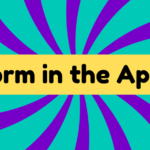The phrase "even a worm will turn" suggests that even the most submissive individuals can resist when pushed too far. Historically, it emphasizes resilience against oppression, with roots in literature from the 16th century. Various synonyms highlight themes of retaliation and strength in vulnerability. Examples shift perspectives on meekness, showing surprising reactions in dire situations. This concept endures today, illustrating the complex dynamics of power and patience; further exploration reveals its profound implications on human behavior.
Synonyms
Synonyms play an essential role in enriching language and conveying nuanced meanings. They serve as gateways to understanding the multifaceted nature of expressions. The phrase "even a worm will turn" reveals important themes like worm resilience and unexpected reactions. To illustrate this, consider the following synonyms:
- Retaliate: to respond in a counteraction.
- Defend: to protect oneself from harm.
- Revolt: to rise against perceived oppression.
- Counter: to respond with an opposing force.
- Resist: to withstand an opposing force.
Each synonym offers a different shade of context, demonstrating how language can adapt to reflect the depths of human experience.
Example of Sentences
The phrase "even a worm will turn" illustrates an important concept about resilience and the capacity for unexpected response. Various sentence examples can demonstrate this idea through illustrative scenarios, such as:
- The quiet student finally spoke up when bullied.
- The gentle employee filed a complaint about unfair treatment.
- The timid animal defended its territory against a larger foe.
- The soft-spoken activist organized a protest after years of neglect.
- The overlooked community united to demand equal rights.
These sentences highlight how individuals, despite seeming passive, can muster unexpected strength when pushed beyond their limits, embodying the essence of resistance and self-defense inherent in the phrase.
Origin
While one might assume that the origins of a phrase like "even a worm will turn" would be straightforward, a deeper examination reveals a more intricate history. This phrase first emerged in John Heywood's 1546 glossary, with its roots in a time when language morphed through cultural lenses. It suggests a broader historical context where the powerless defend themselves against oppression. The phrase's cultural significance deepened when Shakespeare utilized it in "Henry VI" in 1592, underscoring humanity's universal themes of resistance and self-worth. Such an evolution reflects not only the resilience of language but also its ability to resonate across generations.
Collocations
Collocations associated with the phrase "even a worm will turn" reveal patterns in how language intertwines with meaning. These phrases illustrate themes of resistance and the inevitable retaliation that arises from provocation. Remarkably, the following examples demonstrate common collocations with "turn":
- turn the tables
- turn over a new leaf
- turn a blind eye
- turn against
- turn the other cheek
Through these idiomatic expressions, one can discern a deeper understanding of human behavior in challenging circumstances. Each phrase offers insight into the complexity of resilience, highlighting a universal truth: all beings have their breaking point.
How to Use in Everyday Language
Understanding how to integrate the phrase "even a worm will turn" into everyday conversation can enhance one's communication skills, particularly when discussing topics of resilience or provocation. In everyday scenarios, this phrase aptly conveys how even the least powerful can assert themselves when pushed too far. For instance, when discussing emotional reactions in a conflict, one can say, "Even a worm will turn," to highlight a surprising transformation in behavior. It serves as a reminder that patience has limits. By employing such phrases thoughtfully, individuals can effectively articulate the complexities of human emotions and the potential for unexpected responses in challenging situations.
Why Is It Still Relevant Today?
How can a phrase rooted in ancient literature continue to resonate in modern times? "Even a worm will turn" remains relevant today because it captures a universal truth about human nature: everyone has a limit to their patience and tolerance. In an age defined by societal pressure, this phrase serves as a reminder of psychological resilience. Individuals facing injustice or relentless provocation may eventually respond, challenging their circumstances. Such situations highlight the importance of recognizing one's boundaries. Ultimately, the enduring nature of this expression illustrates our collective struggle against oppression, emphasizing the inherent right to resist in the face of overwhelming adversity.







